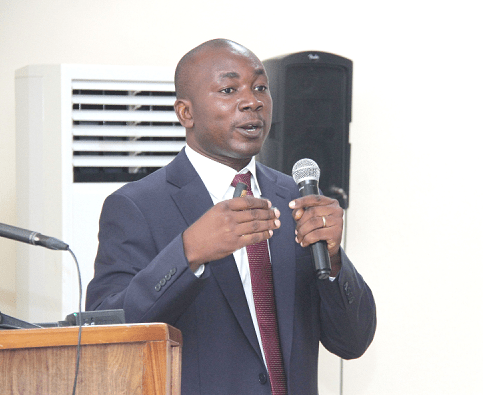Ghana needs to avoid a holdup in debt restructuring talks with China to help save the economy from sliding into deeper crises with spiraling inflation and currency depreciation.
A delay would deny the economy of a bailout package in the first quarter, resulting in the depletion of the already low reserves and weakened confidence, two economic experts, Prof. Godfred Alufar Bokpin of the University of Ghana Business School (UGBS) and Courage Kwesi Boti of GCB Capital Plc, have said in separate interviews.
The two explained that these risked exposing the cedi to new bouts of depreciation and setting in motion another wave of price hikes, public outcry and increased fatigue among firms.
Date change
The two economists were commenting on the recent postponement of a meeting between a Ministry of Finance delegation and Chinese creditors in Beijing from the first week of March to the third week.
The postponement put in limbo the government’s hopes of concluding external debt restructuring in March for the Executive Board of the International Monetary Fund (IMF) to consider the country’s bailout request in April when it meets.
China and its agencies hold more than a third of the country’s $5.7 billion bilateral debt but the specialised nature of their lending windows means that Ghana cannot add them to the G20 Framework used to negotiate with the Pari Club members.
Stormy start
The haze around the IMF deal comes when the cedi is enduring a stormy start to the year after marked calm in the last quarter of this year.
The local currency came under intense pressure last year, losing about 60 per cent of its value to the US dollar as of August 2022 before steadying to 30.1 per cent for the full year.
The steep decline led to historical price hikes, with inflation peaking at 54.1 per cent in December.
Although inflation fell to 53.6 per cent in January, the currency market has been volatile this year.
The cedi was trading at GH¢11.0130 to a dollar as of yesterday with a year-to-date loss of 22.13 per cent.
Diplomacy
The two economic experts concurred that Ghana needed to use diplomacy in resolving the issue as a protraction, similar to what was happening in Zambia, could cripple the economy.
They said it was likely that China would ask for some of Ghana’s natural resources such as gold, oil and bauxite in return for softer loan terms but said caution should be taken to ensure that such decisions protected future generations.
Prof. Bokpin wondered if it was in the interest of China to emerge as the cause of Ghana’s programme delay, noting that, unlike Zambia, Ghana was a ‘star boy’ on the global stage.
Precarious situation
Explaining the need for urgency, the professor of finance said the economy was already in a precarious state and any delay in securing a bailout package would worsen the situation.
“We are living precariously as our reserves are going down. Because the government has taken advantage of this Common Framework and suspended interest payments until the restructuring is completed, the coupon payment that would have affected our reserves has been preserved.
“But how sustainable is that,” Prof. Bokpin asked.
“We need a deal as soon as possible,” he added.
Common framework
Mr Boti of GCB Capital explained that the country’s decision to use the common framework in restructuring the debt means that it could not deal with its creditor countries on an individual basis.
“Therefore, we cannot get a deal without China,” he said.
“The Common Framework requires that you strike a deal with the bilateral creditor committee to agree on a common framework and then extend those terms to the commercial creditors but the membership of that committee is based on the proportion of debt owed to the creditors.
“China holds more than 30 per cent of our debt and here is the case where they are playing hardball now,” he added.
Earlier, IMF-assisted programmes for Zambia, Ethiopia and Niger were delayed after similar talks on debt with China dragged on.
Financial assurance
Prof. Bokpin said Ghana needed China beyond the debt restructuring dynamics.
Given that the country had lost the ability to borrow from the international capital market, the professor of finance said Ghana needed its development partners (DPs), including China, to assure the IMF that they would continue to support it with grants and concessionary lending beyond the existing debt.
“The way it works is that the IMF-assisted programme itself will require more than US$3 billion and so to make it work, the fund will require the likes of the World Bank, the Africa Development Bank and key bilateral nations such as China to commit to closing the financing gap with resources.
“So our engagement with the bilateral partners is restructuring of the existing debt and securing financial assurance or support for our existence in the next three years,” he said.



